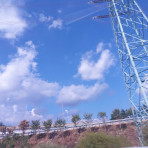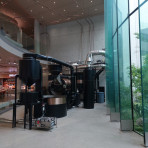Wildlife organization rescues 2 caged moon bear cubs from Laos village
본문
Mon, 26 Feb 2024 15:15:00 -0500

Australian organization Free the Bears recently took possession of two moon bear cubs that had been held in a cage for more than two years near the Laos-Thailand border, an official from the organization told Radio Free Asia.
The bear cubs had been raised by a villager in remote Xayaburi province since their birth, according to the official, who asked to remain anonymous for security reasons.
Last week, the villager handed the cubs over to Free the Bears, which operates a bear rescue center at a wildlife sanctuary in Luang Prabang province, the official said.
“The two cubs are in Luang Prabang now,” the Free the Bears official told RFA. “They were rescued and brought from Nongtok village.”
There are several types of wild bears in Laos’ forested areas, including sun bears and moon bears, also known as Asian black bears.
They’re sometimes captured by local people who keep them on display in their homes – where they can charge a small fee to curious passers by – or sell them to middlemen, according to a Lao official who is familiar with the forestry and agricultural sector in Xayaburi.
One of the two moon bears rescued by Free the Bears is seen in this recent image in a cage in Nongtok village in remote Xayaburi province, Laos. (Image from Free the Bears video)
“Local people raise the bears illegally but when local officials find them, the bears are always seized and sent to the center,” the Lao official said. “By law, they cannot raise bears without permission.”
Sun bears and moon bears are officially listed as endangered wild animals in Laos. Even so, the price of a moon bear cub can range from US$2,000 to US$3,000 each, he said.
And plenty of bears can still be seen in towns and provinces throughout Laos, particularly moon bears, according to one villager who knows about the illegal bear market in southern Laos.
“Within the country, I sometimes see people transport bears from places to places,” the villager said. “Sometimes I see people transport the bears from Laos to Vietnam.”
It’s well known that many bears end up in Vietnam, but it’s unclear what happens to them once they’re there, the Lao official said.
Traditional medicine practitioners often use the bile from moon bears in preparing medicine, according to Free the Bears.
The organization said it has rescued more than 125 bears in Laos since 2003, when its rescue center was founded.
Translated by Phouvong. Edited by Matt Reed and Malcolm Foster.
Australian organization Free the Bears recently took possession of two moon bear cubs that had been held in a cage for more than two years near the Laos-Thailand border, an official from the organization told Radio Free Asia.
The bear cubs had been raised by a villager in remote Xayaburi province since their birth, according to the official, who asked to remain anonymous for security reasons.
Last week, the villager handed the cubs over to Free the Bears, which operates a bear rescue center at a wildlife sanctuary in Luang Prabang province, the official said.
“The two cubs are in Luang Prabang now,” the Free the Bears official told RFA. “They were rescued and brought from Nongtok village.”
There are several types of wild bears in Laos’ forested areas, including sun bears and moon bears, also known as Asian black bears.
They’re sometimes captured by local people who keep them on display in their homes – where they can charge a small fee to curious passers by – or sell them to middlemen, according to a Lao official who is familiar with the forestry and agricultural sector in Xayaburi.
One of the two moon bears rescued by Free the Bears is seen in this recent image in a cage in Nongtok village in remote Xayaburi province, Laos. (Image from Free the Bears video)
“Local people raise the bears illegally but when local officials find them, the bears are always seized and sent to the center,” the Lao official said. “By law, they cannot raise bears without permission.”
Sun bears and moon bears are officially listed as endangered wild animals in Laos. Even so, the price of a moon bear cub can range from US$2,000 to US$3,000 each, he said.
And plenty of bears can still be seen in towns and provinces throughout Laos, particularly moon bears, according to one villager who knows about the illegal bear market in southern Laos.
“Within the country, I sometimes see people transport bears from places to places,” the villager said. “Sometimes I see people transport the bears from Laos to Vietnam.”
It’s well known that many bears end up in Vietnam, but it’s unclear what happens to them once they’re there, the Lao official said.
Traditional medicine practitioners often use the bile from moon bears in preparing medicine, according to Free the Bears.
The organization said it has rescued more than 125 bears in Laos since 2003, when its rescue center was founded.
Translated by Phouvong. Edited by Matt Reed and Malcolm Foster.
자유아시아방송 제공 및 저작권 소유 | RFA provided and copyrighted -www.rfa.org

Australian organization Free the Bears recently took possession of two moon bear cubs that had been held in a cage for more than two years near the Laos-Thailand border, an official from the organization told Radio Free Asia.
The bear cubs had been raised by a villager in remote Xayaburi province since their birth, according to the official, who asked to remain anonymous for security reasons.
Last week, the villager handed the cubs over to Free the Bears, which operates a bear rescue center at a wildlife sanctuary in Luang Prabang province, the official said.
“The two cubs are in Luang Prabang now,” the Free the Bears official told RFA. “They were rescued and brought from Nongtok village.”
There are several types of wild bears in Laos’ forested areas, including sun bears and moon bears, also known as Asian black bears.
They’re sometimes captured by local people who keep them on display in their homes – where they can charge a small fee to curious passers by – or sell them to middlemen, according to a Lao official who is familiar with the forestry and agricultural sector in Xayaburi.
One of the two moon bears rescued by Free the Bears is seen in this recent image in a cage in Nongtok village in remote Xayaburi province, Laos. (Image from Free the Bears video)
“Local people raise the bears illegally but when local officials find them, the bears are always seized and sent to the center,” the Lao official said. “By law, they cannot raise bears without permission.”
Sun bears and moon bears are officially listed as endangered wild animals in Laos. Even so, the price of a moon bear cub can range from US$2,000 to US$3,000 each, he said.
And plenty of bears can still be seen in towns and provinces throughout Laos, particularly moon bears, according to one villager who knows about the illegal bear market in southern Laos.
“Within the country, I sometimes see people transport bears from places to places,” the villager said. “Sometimes I see people transport the bears from Laos to Vietnam.”
It’s well known that many bears end up in Vietnam, but it’s unclear what happens to them once they’re there, the Lao official said.
Traditional medicine practitioners often use the bile from moon bears in preparing medicine, according to Free the Bears.
The organization said it has rescued more than 125 bears in Laos since 2003, when its rescue center was founded.
Translated by Phouvong. Edited by Matt Reed and Malcolm Foster.
Australian organization Free the Bears recently took possession of two moon bear cubs that had been held in a cage for more than two years near the Laos-Thailand border, an official from the organization told Radio Free Asia.
The bear cubs had been raised by a villager in remote Xayaburi province since their birth, according to the official, who asked to remain anonymous for security reasons.
Last week, the villager handed the cubs over to Free the Bears, which operates a bear rescue center at a wildlife sanctuary in Luang Prabang province, the official said.
“The two cubs are in Luang Prabang now,” the Free the Bears official told RFA. “They were rescued and brought from Nongtok village.”
There are several types of wild bears in Laos’ forested areas, including sun bears and moon bears, also known as Asian black bears.
They’re sometimes captured by local people who keep them on display in their homes – where they can charge a small fee to curious passers by – or sell them to middlemen, according to a Lao official who is familiar with the forestry and agricultural sector in Xayaburi.
One of the two moon bears rescued by Free the Bears is seen in this recent image in a cage in Nongtok village in remote Xayaburi province, Laos. (Image from Free the Bears video)
“Local people raise the bears illegally but when local officials find them, the bears are always seized and sent to the center,” the Lao official said. “By law, they cannot raise bears without permission.”
Sun bears and moon bears are officially listed as endangered wild animals in Laos. Even so, the price of a moon bear cub can range from US$2,000 to US$3,000 each, he said.
And plenty of bears can still be seen in towns and provinces throughout Laos, particularly moon bears, according to one villager who knows about the illegal bear market in southern Laos.
“Within the country, I sometimes see people transport bears from places to places,” the villager said. “Sometimes I see people transport the bears from Laos to Vietnam.”
It’s well known that many bears end up in Vietnam, but it’s unclear what happens to them once they’re there, the Lao official said.
Traditional medicine practitioners often use the bile from moon bears in preparing medicine, according to Free the Bears.
The organization said it has rescued more than 125 bears in Laos since 2003, when its rescue center was founded.
Translated by Phouvong. Edited by Matt Reed and Malcolm Foster.
좋아요2
이 글을 좋아요하셨습니다
관련링크
등록된 댓글이 없습니다.





































